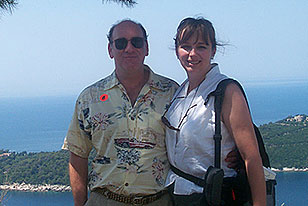Evolution: The Best Idea In The World
On Nov. 22, 1859, with the publication of On the Origin of Species, Charles Darwin forever changed not only biology, but also the way humans view their place in nature. There is a good case to be made that Darwinism is the best idea anyone ever had. In this series of five seminars by Dr. Coyne we will look at Darwin's theories, how he developed them, the amazing variety of evidence supporting them, and what they mean for us humans, both biologically and philosophically.
1859: The Impact of a Dangerous Idea (90 minutes)
Speaker: Jerry Coyne, Ph.D.
In this first session we'll trace the origin of Darwin's "dangerous idea" (actually several ideas) beginning with his famous voyage on the HMS Beagle. We will learn what Darwin really proposed, what impact the ideas of evolution and natural selection had on the Victorian world, and why Darwinism was — and still is — considered a dangerous idea.
How Do We Know It's True? The Evidence for Evolution (90 minutes)
Speaker: Jerry Coyne, Ph.D.
Darwin provided convincing evidence for his theories in 1859, but since then biologists have amassed mountains of additional data supporting them. In this session we'll examine the fascinating evidence for evolution and natural selection, drawing from areas as diverse as fossils, embryology, and the distribution of living and extinct species over the planet.
Unconscious Design: Natural Selection (90 minutes)
Speaker: Jerry Coyne, Ph.D.
While the idea of evolution was immediately accepted by 19th-century biologists, the concept of natural selection — the purposeless driving force of evolution and adaptation — has been much more controversial. This talk will describe what natural selection really is and see examples of how it works in nature. We will also examine the complementary theory of sexual selection, which explains the remarkable difference in appearance and behaviour between males and females in many species.
Mimicry: The Evolution of Duplicity (90 minutes)
Speaker: Jerry Coyne, Ph.D.
Animals and plants show a diverse and bizarre group of adaptations designed to hide them or make them mimic features of their environment. This lecture illustrates the wonderful panoply of such adaptations but also uses them to illustrate the diverse ways that natural selection can operate.
Sex and Selection (90 minutes)
Speaker: Jerry Coyne, Ph.D.
In many species of animals, such as the peacock, males and females look and behave very different from each other. This long posed a problem to evolutionists, but now we have a good understanding of how selection can create such differences between the sexes. This lecture illustrates the stunning diversity of traits that have evolved by "sexual selection," and explains modern views of how this process (first suggested by Darwin) really works.












